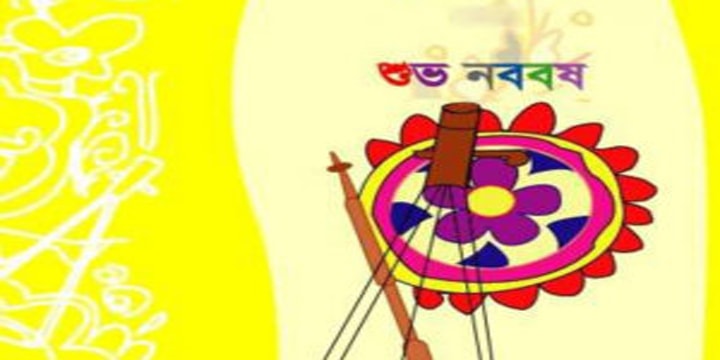Poila Boishakh is the Bengali New Year or Noboborsho as it is called in Bengali. It is the first day of Boishakh maash which is the first month of the Bengali calendar which is lunisolar. It is believed that traditionally it was the Bengali harvest festival like Vaisakhi in Punjab and Vishu in Kerela. In Bengal and Tripura it is celebrated on the 14th or the 15th of April. It is as much an occasion for family and friends as it is for the Bengali community in general, the world over. Friends and family meet and greet each other with the salutation, “Shubho Noboborsho!” which translates to Happy New Year in English.
In both West Bengal and Bangladesh, notun phoshol or new crops are supposed to be harvested on this day. In the old days of the Zamindari system, the book of accounts was updated on this day and creditors paid off. This is known as Haalkhata even today. It signifies the end of the old financial year and the beginning of a new one for businessmen. Houses were decorated with Alpona similar to Rangoli. In the centre of it is placed an earthen pot topped with leaves of the mango tree. The traditional Hindu symbol of well being, the Swastika is painted on it in red and white. Lord Ganesh is placed next to Goddess Lakshmi and the two are worshiped together. The Haalkhata is opened in front of the idols. This is supposed to be auspicious and the practice endures to this day.
In my youth, I remember running down to the local shop to buy sweetmeats worth Rs. 2 and getting calendars, gifts and sweets worth Rs. 20 in return. It was a standing tradition to buy the updated Panjika on Poila Boishakh. Not many people do this anymore. I have early remembrances of getting new clothes as gifts on Poila Boishakh. Even today, people take avail of the Chaitra sale to buy gifts for friends and family. Also popular was the tradition of Bengali families visiting temples like Dakshineswar or Kalighat on the day.
Of course, no Bengali occasion is complete without food. A traditional Bengali meal on this day starts usually with Shukto then moves on to Aloo Jhinga Posto. It may or may not be followed by Chholar Dal. Ilish Maacher Bhapa is a must. Aamer Chatni is essential before the sweet dish. Chaaler payesh was my particular favourite on Poila Boishakh or Grandma’s awesome mochaar chop.
Needless to say, the pace of life in the present times is such that it is virtually impossible for many to suspend work for one whole day. Most of the traditions are lost. Also, the New Year in the West overshadows every other regional celebration. However, Bengalis all the world round still observe Poila Boishakh as a day to celebrate togetherness, discarding the old and welcoming the new.

